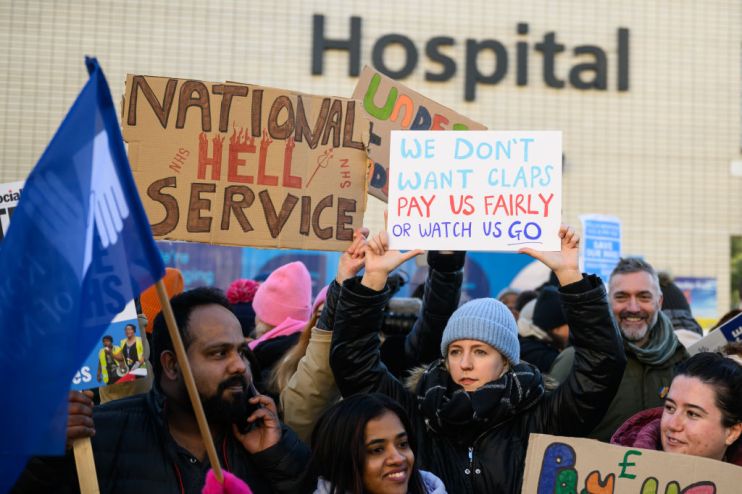The Labour Party has yet to find a compelling answer to the winter of strikes

What we’re witnessing now reads like something from the political history section of an A-level history book. Welcome the widespread strikes, including in the public sector, a government struggling to manage a difficult economy, a charismatic union boss and a prime minister conscious of approaching elections but still hoping for an upswing in his fortunes. Crisis? What crisis? Yet here we are in 2022. Despite all the opinion-testing sophistication that wasn’t available in 1978-79, it is still not clear how this will play out.
Earlier in the year I suggested that Sir Keir Starmer should have been bolder in his approach to industrial action. He should have seen the chance to back striking workers as an opportunity to differentiate himself from the government and show some old-fashioned socialist ankle to his critics. Instead he still has not moved his party very far on this. His shadow cabinet lines up to lambast the government for its failure to negotiate with the unions, but when they are – not unreasonably – asked how they would solve the disputes, they are often rather shy.
Last Friday Anneliese Dodds, the chair of the Labour Party and a former shadow chancellor, was asked on Sky News how her colleagues would handle the dispute with nurses and whether a Labour government would offer a higher settlement. She avoided even hinting at a figure for four times in a row, simply repeating “we would negotiate”. She asserted that she was not “going to on live television pluck a figure out of the air”. Yet it is hardly unreasonable to expect that she and her colleagues might have given the matter some detailed consideration.
Is what’s coming out from the Labour Party enough? Oppositions exist to oppose, of course, and we should always be aware that those parties seeking to replace the existing government do not have access to all the information that the administration has. But people have a right to expect to hear both sides of the story and can tell when politicians are bluffing and evasive. The real trick for ministers and their shadows now is sensing where the public mood lies.
Last week, the Daily Express published data from polling company Techne UK on the public perception of the current situation. While hardly representing Rishi Sunak’s salvation, the poll certainly suggested that public opinion was not buying the narrative of hard-done, impoverished workers brought to the brink.
“Clearly voters are not necessarily and immediately willing to support such strike action and the impact on ordinary families and their working lives cannot be underestimated”, said Michela Morizzo, the polling company’s CEO. This came as figures showed the gap between Labour and the Conservatives, while still formidable, had shrunk by five per cent in the space of two weeks. It seems at least possible that disruption to Christmas travel and unreliable postal deliveries in the run-up to the exchanging of gifts has hardened public attitudes. Without being overly cynical, voters are gung-ho for workers’ rights until their own lives are affected.
What are the lessons for Rishi Sunak and his team? The overriding need is to appear calm, rational, sympathetic but firm. Trades unions are sectoral and their priority is their members’ interests. That is no criticism: it is what they are for. The narrative which the government must develop and sustain is that they understand that times are difficult but must, unlike the unions, have regard for the economy as a whole. Inflation is hovering around 10 per cent, at a rate unimaginable even two years ago, and ministers must be vigilant in keeping it as low as possible. Pay increases must always be set against that backdrop.
There is no guarantee the Conservative Party can “win” this battle of competing priorities. But Sunak’s best chance, in league with his chancellor Jeremy Hunt and all the departmental ministers involved, is to try to seem understanding but remain resolute in defence of the economy as a whole. It’s all very well for you, they must say to the unions, to fight for your members, but our constituency is the British public. If Labour continues to avoid detailed scrutiny on their alternative plans, they will only make the government’s job easier.